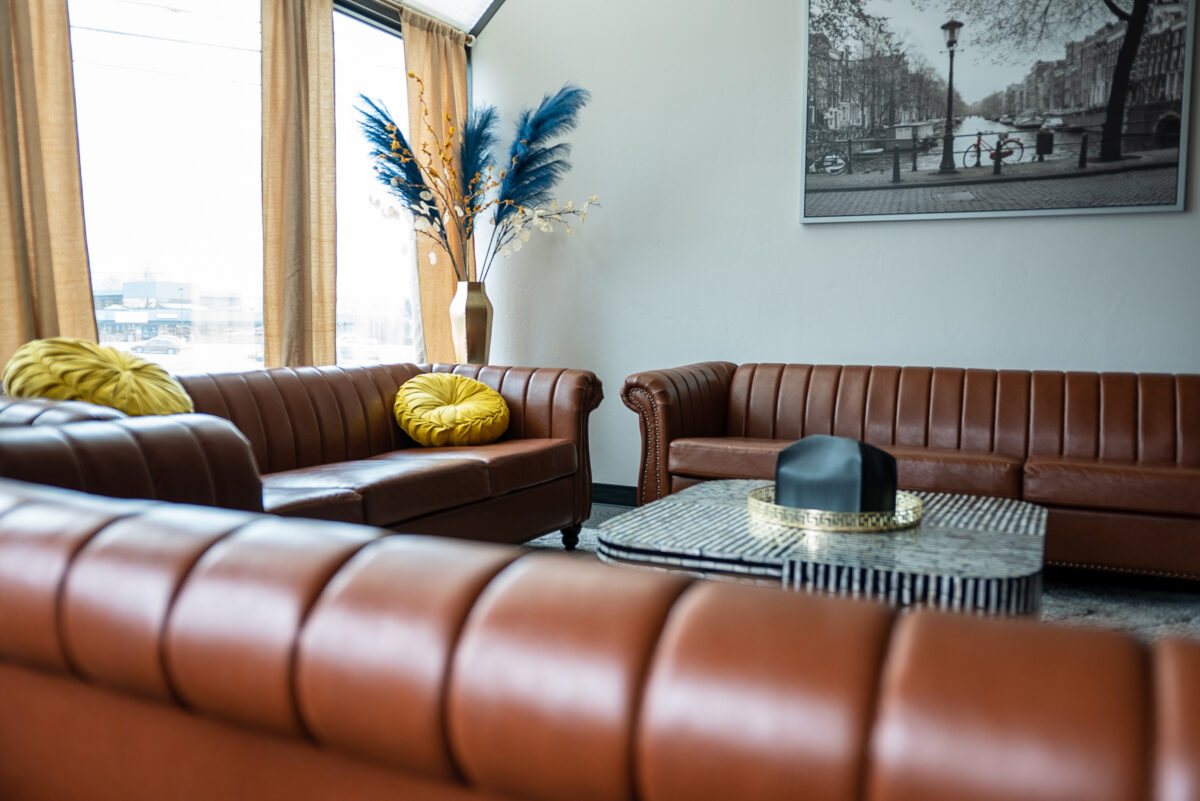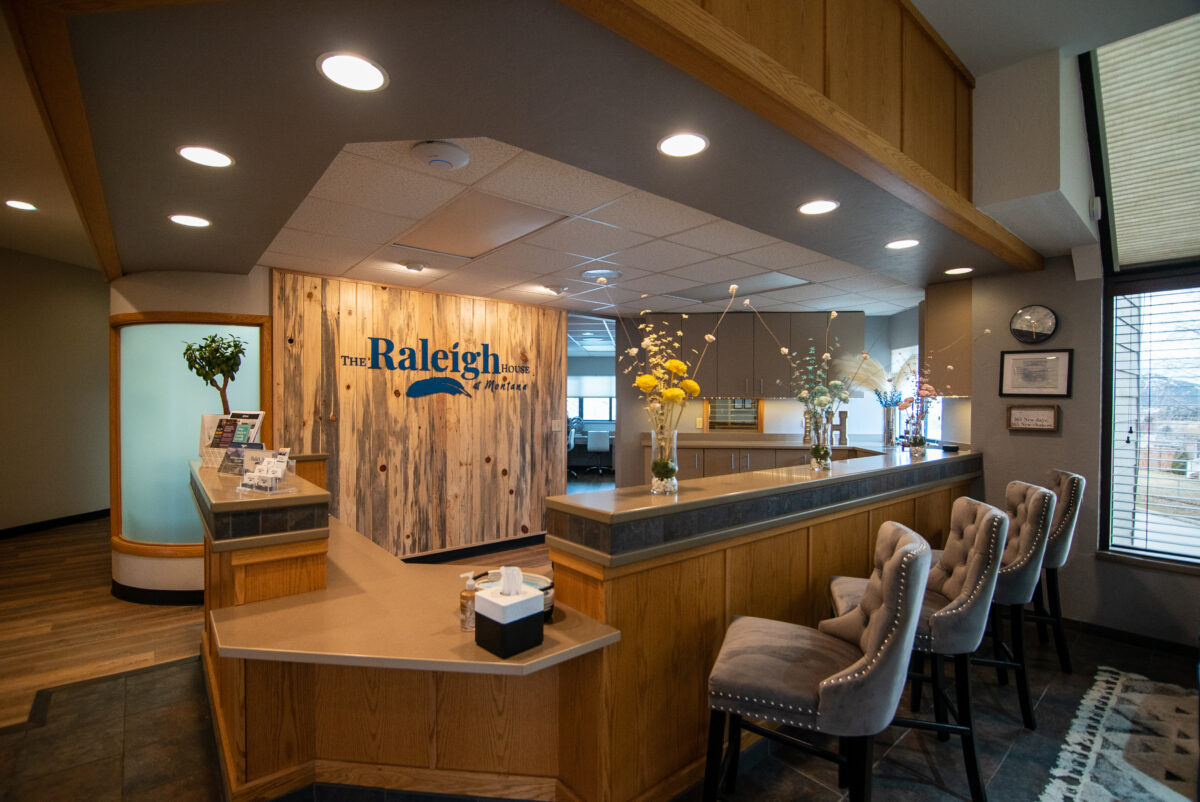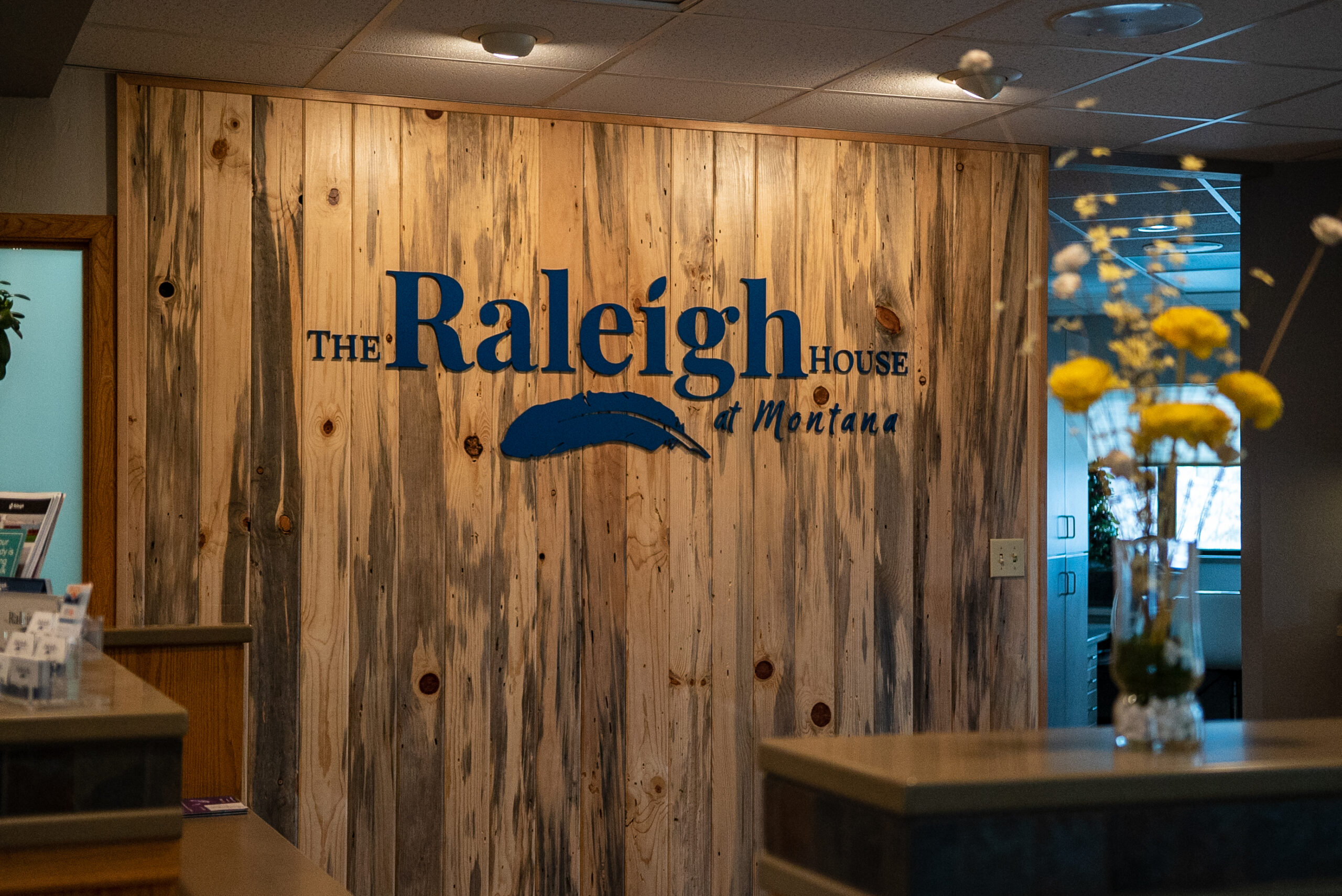When Whitney Harrah had the opportunity to return to her hometown in the Flathead Valley and utilize her 20-plus years in treatment center leadership and clinical services delivery, she seized it.
As a multi-state licensed clinician specializing in addiction and mental health disorders, Harrah has dedicated her professional life to creating therapeutic environments where people can uncover, discover, address and resolve issues. Arriving home to the Flathead Valley, where Harrah attended high school, she saw a community in which addiction and acute mental health crises have taken a steep toll, and in the years since she left to pursue an education and career, the transformation was palpable.
But having served on the frontlines of addiction and mental health treatment since 2003 in the Denver Metro area, where she helped to build an innovative recovery program called The Raleigh House, Harrah had a feeling that a similar model of recovery and treatment could be adapted to meet the unique needs of individuals struggling to overcome addiction and mental health disorders here.
“I grew up here,” said Harrah, Executive Director of The Raleigh House at Montana, an outpatient treatment center for adults and adolescents with a new location in Kalispell. “My Dad was the second ER doctor in Kalispell and my Mom was a nurse, so health care has always been a constant in my world. I spent my formative years here. I wanted to choose this place as the focus of the next chapter of my career because I want to share what I’ve learned in a place that I love.”
Through her work at The Raleigh House, which has operated in Denver’s metropolitan area for the past 15 years, Harrah helped develop a philosophy that emphasizes dynamic outpatient treatment plans that incorporate an individual’s full spectrum of experience into their recovery.

“The Raleigh House was built on a philosophy that people who are seeking treatment have a multitude of different domains of their lives that need to be assessed and nurtured in order for change to occur,” Harrah said. “We are looking at all the angles to figure out why a person is presenting a certain way – their substance use, their family dynamics, their early childhood development and adolescence, their mental health history and biological factors. It is really crucial to understand the connections and intersections that contribute to and maintain symptoms.”
Harrah said northwest Montana’s idyllic setting was a perfect complement to what The Raleigh House has achieved on its ranch in Colorado, where the menu of therapeutic services include medication assisted detox and stabilization, evidence-based treatment modalities with an emphasis on trauma informed care. Raleigh House focuses on an elevated client experience with additional services such as personal training, an indoor rock-climbing gym, equine-assisted therapy as well as an outstanding nutritional culinary experience. Although the Kalispell campus doesn’t offer the same suite of services, its staff members have an intimate familiarity with what contributes to the region’s quality of life.
“There are so many ways to get healthy, to change and to grow,” Harrah said. “You never know what information, setting, or interaction will trigger shifts and changes — but we help people find it.”
Since The Raleigh House debuted in 2008, the program’s founder, Eric Lapp, has often considered expanding its reach. When he settled on opening a Kalispell location, which he dubbed The Raleigh House at Montana, he knew it should be staffed with people who have been a part of this Valley’s community and history.
“I’d meet community members and describe the recovery program I was building here, and the overwhelming response was, ‘Thank you, our valley desperately needs this,’” recalls Lapp. “At first I was a little taken aback, until I started learning more about the Flathead Valley’s unique needs.”
From emerging patterns of youth suicide to some of the highest rates of addiction and substance abuse in the nation, northwest Montana has been beset by a range of challenges rooted in mental and behavioral health, while the resources to meaningfully address these issues have not kept pace with either the need or the demand.
With The Raleigh House, Lapp and Harrah have refined an evidence-based model of intensive outpatient care that pairs individuals with master’s-level licensed clinicians and psychiatric professionals to identify and treat co-occurring disorders and craft a continuum-of-care treatment plan that is tailored to an individual’s unique set of needs.
Hailing from Denver, with a textured recovery history of his own, Lapp said he understands that western cultural paradigms and their ethos of rugged individualism are often at odds with the vulnerability that individuals must accept in order to succeed in recovery.
“In many ways, Montana is still very much one of the last frontiers where Montanans can be themselves without a lot of disruption or outside influence,” Lapp said. “But with that comes some traditional ways of thinking, and that’s not necessarily the best method of addressing depression or anxiety or addiction. Because most often, if someone is drinking too much it’s because they don’t know how to cope with another underlying issue. And that’s where The Raleigh House is effective. It’s a venue where people can have these deeper conversations with members of a recovery community that doesn’t have those stigmas attached. We understand that substance abuse happens. Depression happens. Anxiety happens. And we offer a safe space to discover why it happens.”

For Melisa Goe, the business development representative for The Raleigh House at Montana, her experience living in Kalispell for nearly three decades gives her an added degree of compassion and community investment — traits she says set The Raleigh House and its staff apart from other resources in the state.
“The facility that we created is a place of warmth,” Goe said.
Added Harrah: “We have paid special attention to the meaning of environment and creating an elevated space where people feel the value of growing and are curious about how to get well.”
In its 15 years of service, The Raleigh House has helped thousands of people gain access to addiction and mental health treatment while taking the long view on recovery success. While the Colorado Campuses host all levels of care from detoxification services to outpatient care, The Raleigh House at Montana offers intensive outpatient (IOP) care, treatment and services to assist clients as they overcome behavioral health issues while engaging in everyday life.
Intensive outpatient treatment affords clients the opportunity to participate in 9-15 hours of therapy per week, while also maintaining a career, schooling, family life, outside obligations and extracurricular interests and activities. This level of care allows clients to integrate, and practice learned skills in the environment in which they live, while also providing a connection to professionals who can assist them overcome obstacles, barriers and setbacks — all while offering and reinforcing connectivity, support and encouragement. The power of the group helps
clients eliminate blind spots, identify issues, increase awareness, and connect in a healthy and mature manner, supporting and challenging them to grow, expand and rebuild.
“Our treatment program allows people the opportunity to get curious about getting healthy, explore and examine patterns that are not effective and write a new story, find a new purpose and re-inspire oneself,” Harrah said.
The above content is sponsored by The Raleigh House. To learn more about sponsored content, email [email protected].
